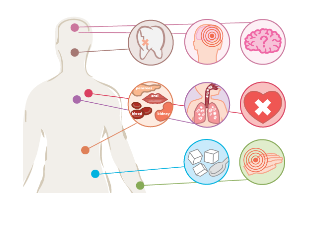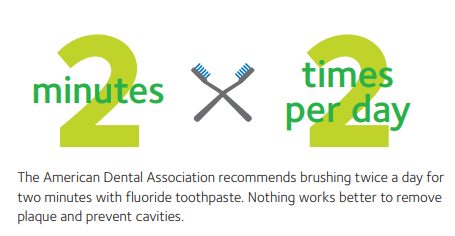
Did you know that your oral health is connected to you overall health? In-matter-of-fact, your mouth is considered the window into the health of your body, and it can show signs of nutritional deficiencies, general infections or the first signs of systemic diseases (diseases that affect your entire body such as heart disease or diabetes).
Impact
Female Hormones: (includes puberty, period, pregnancy and menopause)
- Estrogen and progesterone surges make women more susceptible to periodontal (gum) disease due to the hormones increasing blood flow to the gums resulting in sensitive gums.
- Menopausal women who are experiencing dry mouth are at an increased risk for cavities because saliva is needed to help keep the teeth clean. In addition, menopausal women at risk for bone loss could lose bone in the jaw area, which can lead to tooth loss.
- Pregnant women with poor oral hygiene habits may suffer from premature delivery, intrauterine growth restriction, gestational diabetes and Preeclampsia. In addition, progesterone and estrogen can loosen the ligaments and bones that keep teeth in place. Pregnant women should talk to their dentist if they feel like their teeth are moving or shifting.
Diabetes
Those with Diabetes are at an increased risk for developing periodontal disease especially as they get older or if they are experiencing poor blood sugar control. And just like other infections, serious gum disease may cause blood sugar to rise making it harder to control. This in turn makes those with Diabetes more susceptible to infections.
Oral piercings or Tongue Splitting
The mouth is a moist environment that contains millions of bacteria, which provides an ideal environment for infections, and oral piercings or tongue splitting can increase the risk for infection and swelling. These infections can quickly become life threatening if not treated promptly, and a swollen tongue can even block your airway. Other infections could lead to more serious infections,such as hepatitis or endocarditis.
Other issues include:
- Damage to gums, teeth and fillings. A common habit of biting or playing with the piercing can injure gums and lead to cracked, scratched or sensitive teeth. Piercings can also damage fillings.
- Permanent nerve damage from tongue piercing and damage to the tongue’s blood vessels that can cause serious blood loss
Oral Cancer:
Regular visits to your dentist can help detect oral cancers early, and may reduce your chances of developing them.
Risk Factors:
- Smoking/tobacco use leads to gum disease and dramatically increases your risk for oral cancer
- The Human Papilloma Virus (HPV) is now associated with about 9,000 cases of head and neck cancer (specifically those occurring at the back of the tongue, in or around the tonsils) diagnosed each year in the United States, according to the CDC
- Men are twice more likely to get oral cancer
- Being 55 or older
- Heavy drinking
Heart Disease:
According to the American Heart Association, studies have found a link between heart disease and periodontal disease, and brushing your teeth twice a day for at least two minutes may lower the risk of cardiovascular diseases.
HIV/AIDS:
People living with HIV/AIDS are more susceptible to infections including dental infections, which may first show up in the mouth. Painful dental and mouth problems related to HIV can make it difficult to chew or swallow preventing those affected from taking his/her HIV medication. It can also result in malnutrition and may affect the absorption of HIV drug treatment.
(This is not an inclusive list. More information can be found at Fight Gum Disease or Mouth Healthy.)
Prevention
- Brush your teeth twice a day with an (ADA-accepted) fluoride toothpaste
- Clean between your teeth or floss once a day
- Replace your toothbrush every three or four months
- Eat a balanced diet that limits sugary beverages and snacks
- See your dentist regularly for prevention and treatment of oral disease
Resources
- American Dental Association
- Fight Gum Disease
- Mouth Healthy (American Dental Association)
- National Council of State Legislatures
- Ohio Dental Association


